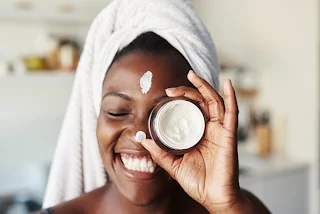How to care for your skin during menopause | Take care of your skin
Take care of your skin
During menopause, the skin loses some of its ability to retain water, causing dryness. To help prevent
dryness, wash your skin with a mild cleanser, as regular soap could be too drying.
After bathing or showering and throughout the day, apply a moisturizer containing hyaluronic acid or glycerin. When itching occurs, use a cool compress for relief. You can also add colloidal oatmeal to your bath.
This soothing powder can be found in most drug and beauty stores. If you have acne, wash your skin with a cleanser containing benzoyl peroxide. You can also consider applying a product containing adapalene to treat acne.
Be gentle with your skin. Avoid picking or squeezing at acne, as this can lead to scarring. Avoid products that dry out your skin, as this can make acne worse. To prevent age spots, protect your skin from the sun.
Apply a broad-spectrum sunscreen with an SPF of 30 or higher when going outdoors. Sun protection can help fade age spots and prevent new ones from forming. Since your risk of skin cancer increases with age, perform skin self-exams.
If you notice any new spots on your skin, spots that are different from others, or spots that are changing, itching, or bleeding, make an appointment to see a board-certified dermatologist.
Spending even a short amount of time in the
sun can cause lupus to flare or worsen. Certain lupus medications can also increase
light sensitivity. To help prevent flares, protect your skin
from the sun by:
- Wearing protective clothing;
- Seeking shade; and - Applying a broad-spectrum sunscreen with
an SPF of 30 or higher to all skin not covered by clothing.
Just like the sun, tanning beds emit harmful UV rays and should be avoided. Do not touch, rub, or pick at patches or rashes
on your skin, since this can cause new ones to develop. Certain lightbulbs, such as fluorescent or
halogen, emit some UV light and can cause
a flare or itchy skin. Consider using incandescent lightbulbs. Smoking may worsen lupus and prevent your
lupus medication from working. Even though quitting may seem difficult, the
payoff on your health will be worth it.
To soothe skin inflammation, try a colloidal
oatmeal bath. For more tips on how to manage lupus on your
skin, make an appointment to see a board-certified dermatologist.



%E2%80%AC.jpg)

